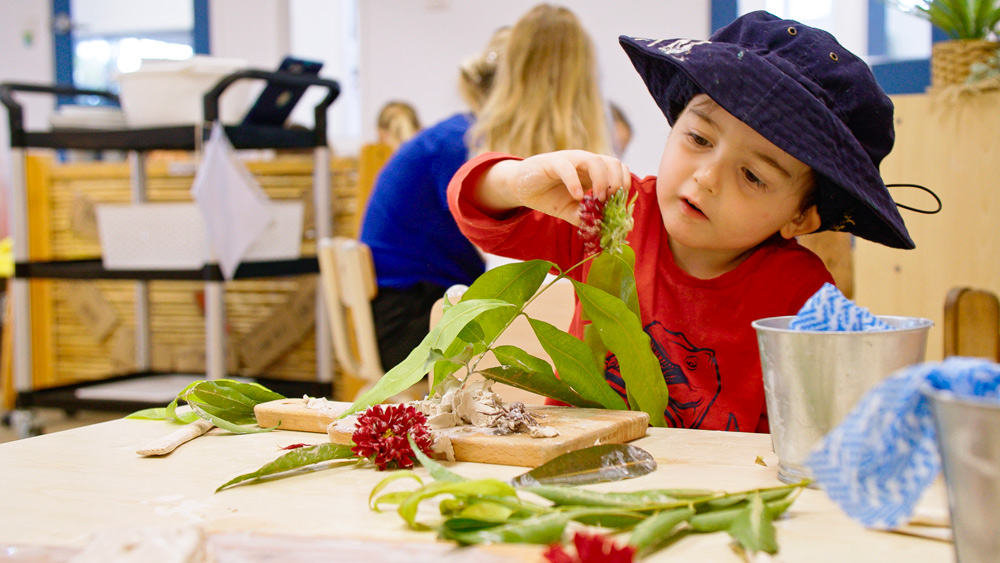As a soon to be mum growing a human inside of you, you are forever conscious of what you are putting into your body. Sanctuary Early Learning Adventure acknowledges that sometimes it can all just be too overwhelming and want to support our families in providing the correct health and nutrition information! So let’s sort fact from fiction around pregnancy foods with the help of Emily Skye – resident fitness coach and mummy blogger.
Myth #1: You’re eating for two
This old saying is officially cancelled! Yes, your calorie needs do increase at certain stages of pregnancy, but they do not DOUBLE. It’s not about going wild and eating as much as you want ‘Because I’m pregnant!’
The most important thing is to listen to your hunger –everybody is different, and you may find you get a lot hungrier on some days than others.
Myth #2: No seafood for you!
Craving fish and chips? We have good news: there is no blanket ban on seafood during pregnancy. That said, due to the risk of listeria contamination there are some types of seafood you should NOT eat when pregnant:
- Raw seafood, e.g. oysters, sashimi and sushi.
- Smoked ready-to-eat seafood or cooked ready-to-eat shellfish, e.g. prawns/shrimp.
Some larger fish varieties are a higher risk for containing mercury, so you should limit your intake of the following fish to no more than once every 2 weeks:
- shark (flake)
- billfish (marlin, swordfish, broadbill)
- barramundi
- ling
- gemfish
- orange roughy (sea perch)
- catfish
- tuna
Most other fish can safely be consumed on a regular basis, like our Baked Fish Fillets with Mixed Peppers or Spicy Salmon Tray Baked Tacos (above).
Myth #3: Only drink full cream milk
Milk offers plenty of nutrients to support your baby’s development, and studies have shown it can positively impact the birth weight of babies. But there is no need to switch to whole milk. Stick with the type of milk you like, whether that’s reduced fat, skim or something else on the low to full fat spectrum. And if you drink a plant-based milk alternative, make sure it’s a fortified variety – that means essential nutrients are added to the milk, so both you and bub don’t miss out on anything you need.
Myth #4: Ginger cures morning sickness
It might be good for seasickness, but morning sickness isn’t likely to be eased by ginger. There’s no harm in trying it, but researchers looked into ginger is helpful for morning sickness and concluded the evidence isn’t there.
If you are experiencing nausea, take a look at Emily Skye’s dietitian-approved tips to help.
Myth #5: Spicy foods cause miscarriage
Those Spicy Salmon Tacos we mentioned earlier? You can keep them and your favourite curry, too! While spicy food can cause reflux and make some pregnant women feel sick, there is no known connection between spicy food and miscarriage.
Myth #6: Eating nuts can cause allergies in your baby
We turned to Emily Skye FIT’s own advanced sports dietitian Lisa Middleton to get the truth about this common pregnancy concern.
“I see many women who think eating peanuts during pregnancy is either a positive or negative for allergy risk in their babies,” Lisa says. “But there is no evidence that eating nuts will cause your child to develop allergies, and research into whether it has a positive effect is inconclusive.”
Myth #7: You can’t eat cheese
No cheese for 9 months? No way! However, you do need to be careful with which cheese you eat and how. You should avoid soft and surface-ripened cheeses such as brie, camembert, ricotta, feta and blue cheese– but they can be eaten cooked and hot, e.g. in a quiche or on pizza. Plus, you can continue to enjoy hard cheeses (e.g. cheddar, edam, gouda) whatever way you like to eat them. Yes!
If you have any concerns about what you should or shouldn’t eat during pregnancy, please refer to Emily’s FIT Food Safety Guide for Pregnant Women, and talk to your doctor or an accredited dietitian.






